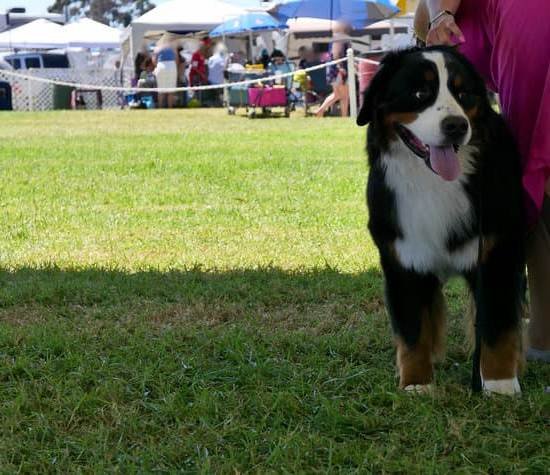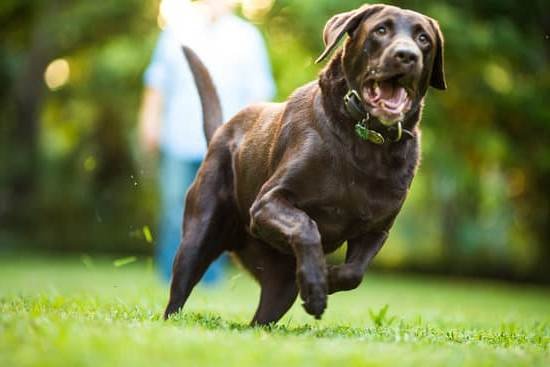Introduction
Dog Prey Drive Training is a highly effective and sought-after method of training for dogs. This type of training is based on a canine’s natural instinctive behavior, which is known as Prey Drive. By utilizing the power of this drive, owners of all breeds of canines are given both an understanding and practical way to train their furry family members.
This type of training focuses heavily on the specific behaviors that trigger a dog’s innate prey instinct. Through structured activities such as chasing, stalking, sniffing, and pouncing, an owner can effectively redirect the dog’s impulses and use them for constructive learning. Dog Prey Drive Training allows the canine to experience positive social interactions with other pets, animals in its environment, and even other people. Furthermore, this form of pet training also encourages obedience and helps develop better recall and discipline skills in the animal. Not only does it provide physical stimulation from which an animal immensely benefits; but it also builds confidence and trust between a pet’s handler and itself. In addition to developing obedience skills in canines, Dog Prey Drive Training also offers problem solving practice opportunities such as searching for hidden objects or toys around the house or yard.
What is Prey Drive in Dogs and What it Looks Like
Prey drive in dogs is an innate behavior that manifests as a strong predatory instinct. Dogs are instinctively predisposed to chase moving objects and small animals, likely due to their ancestors many years ago who were scavengers and hunters. Prey drive looks like running after a thrown ball or chasing after other small animals. It can also appear as sniffing or stalking like motion while keeping an eye on a certain object or animal. Dogs often become excited when they sense something that triggers prey drive, such as movement or scent. They often will have increased energy and focus when interacting with the object that triggers the prey response. This behavior is natural but can be dangerous if not managed properly, so it is important to train dogs in proper ways of channeling this behavior into appropriate activities.
Prey Drive Training is a great way to properly redirect and manage the dog’s innate hunting instinct and turn it into safer activities. The goal of these types of training programs is to encourage the dog to engage with interactive toys instead of chasing animals or children’s bikes, for example. This can be done through positive reinforcement for only desired behaviors and luring the dog away from any undesired actions with treats and rewards for engaging in predictable playtime activities, such as playing fetch or tug-of-war with non-living toys like Kongs® or rope toys. It’s important to reward desired behaviors from an early age and continue rewarding throughout a dog’s life while gradually increasing the difficulty of tasks over time, so they remain stimulated mentally as well as physically.
The Benefits of Prey Drive Training for you and your Dog
Prey drive training is a great way to not only build a stronger bond between you and your pup, but also to allow your dog to enjoy a mentally stimulating activity. Through prey drive training sessions, you can help your pup develop new skills and habits that would otherwise be difficult to train. Over time, as reward-based activities become regularized in the daily experiences of both you and your pet, trust will increase, which leads to better obedience and improved relationship dynamics.
Beyond strengthening the bond between you and your pup, prey drive training comes with several other important benefits. This type of activity presents a low impact workout for our furry friends. By following toys that have been thrown or dragged around the house or yard, they get the exercise they need but don’t have to challenge their joints like running does. In addition to providing physical benefits like improved agility and increased muscle strength, frequent prey drive activities can also help dogs stay lean which helps reduce the risk of cardiovascular issues later in life.
Not only does this type of training provide physical benefits for your pup, but it is also beneficial for mental health as well. Dogs with previously low confidence and reactivity levels can benefit from this type of play-based learning by allowing them to learn in a safe environment without fear or worry of punishment. Prey drive activities are even proven to help develop better memory retention from visual cues learned during playtime. Allowing our pets an outlet through unpredictable simulated hunting provides a great stress reliever while improving sensory perception!
Essential Supplies for Effective Prey Drive Training
For effective prey drive training, it is important to have the right supplies at hand. These items can include special toys to stimulate the dog’s instinct, treats or food rewards, durable collar and leash, whistle, clicker and marker words (such as ‘good’ or ‘yes’) for positive reinforcement. You should also have safety equipment such as a long line for controlling the dog from far away in case of emergency. Additional supplies may include target sticks or objects to encourage focus on a specific area during training sessions, items such as practice dummies to help your dog learn to retrieve objects accurately, drag lures or lightweight leash trailing behind you while walking with your dog and an agility course set up for more advanced training. Prey drive training can be a great way to bond with your pet while developing their physical and mental skills but having the right supplies can help ensure that lessons are filled with success.
How to Prepare Your Dog for Prey Drive Training
Before you start prey drive training with your dog, it’s important to make sure they are physically, mentally and emotionally ready. Physically, it is important to ensure your dog is in optimal form and has no physical problems such as obesity or any other issues that might cause undue stress. It is also a great idea to schedule a checkup at the vet before starting any drive training sessions. Mentally, it is important to familiarize yourself with the concepts presented by behavioral experts such as Pavlov and Skinner. Additionally, research basic commands that can be used during prey drive training. These will help provide structure for both you and your pet during the learning process. Finally, ensure that your dog has high emotional stability so that he/she can focus on completing tasks rather than getting frustrated when things don’t go their way. Before beginning each session of prey drive training, take some time to warm up and engage in activities like bonding games with your pup such as fetch or tug of war. This will help create an environment where you encourage positive behavior from your furry friend!
Setting Up the Prey Drive Training Environment
When it comes to setting up the prey drive training environment for your dog, there are a few important steps you will want to take. The first is to create a safe space for the training; this means setting up an area that is fenced in or otherwise secure from external environment so your pup won’t be distracted by anything that could lead them away from the exercise. You will then want to add plenty of toys and treats that serve as motivators throughout the session. Once you have secured the environment, it’s time to introduce the target object or game that will build up your pup’s instinctive preying behaviors. There are many different options like chasing sticks, balls, laser pointers, etc., just make sure whatever option you choose does not pose any harm to your pup when playing or engaging with it. Additionally, you may find having someone else help with the training beneficial as well; this allows you and your pup some sensory diversity during playtime. With the proper setup and assistance, you can be sure your pup is having fun and learning at the same time through their prey drive sessions!
Effective Techniques to Maximize Prey Drive Training Results
Dog prey drive training helps to not only strengthen the bond that a dog and its owner have, but also to reinforce appropriate behavior. Prey drive is a natural instinct in dogs which can be used as an effective means of obedience training. With the right techniques and methods, prey drive training can give owners more control over their pet’s behavior and better results in obedience commands such as “come” and “heel.”
One of the most important things to consider when beginning prey drive training is reward-based reinforcement. Praise and treats should be given upon successful completion of a command or task. For example, if your dog successfully completes a “heel” command, provide them with verbal praise or positive physical contact along with treats if desired. Rewarding behaviors promotes stronger canine bonds which improves behavioral responses for future instances of prey drive training or other forms of obedience commands.
In addition to rewarding desired behaviors via reinforcement, it is helpful to work on pairing commands with particular movements such as running or tugging during playtime activities like fetch. Training can become quickly monotonous so it’s important to bring new elements into sessions to engage puppies or young dogs in prey-related activities such as chasing after toys, skidding from one side of the room to another at their master’s request, and properly responding to call backs from distances. The longer you progress through these practices combined with rewards, the greater chance you will have of your pup responding correctly when called upon in further obedience tests or tasks outside the home environment.
The key with prey drive training is consistency and repetition; however, all too often owners tire out before their pup does leaving both parties frustrated at the end of the session. To avoid this situation it’s beneficial set realistic goals designed around specific actions that will improve responses over time leading up to a successful application outside of structured lessons areas such as parks, trails or other public gathering spots. Lastly invest in quality tools such as lures, balls, discs and tugs along with proper pet apparel (collar and leash) for optimal results during focused practice moments designs specifically for building desirable behaviors related to response expectancy patterns needed for increased compliance overall when working together going forward.
Things to Avoid During Prey Drive Training For Maximum Results
When training a working dog’s prey drive, there are some key points that should be avoided in order to get the best results. Over-stimulation of the dog by too much praise or over-excitement is one that can hamper progress. Dogs need to focus and concentrate on the task at hand and too much enthusiasm can break their concentration. Another common mistake is providing the reward too soon after each action has been completed. If a reward is given too quickly it can teach the dog that doing nothing is actually more beneficial than performing a task correctly. Lastly, over-training should be avoided since aggressive behavior can start to show if a working dog has been pushed past its mental or physical capacity; this will only result in frustration both on your part and the dogs.
Conclusion
Dog prey drive training can be a useful tool for addressing problem behaviors in pets, such as excessive barking and chasing after animals or cars. It also allows dog owners to channel their pet’s natural desire to hunt into more productive activities. However, it is important to remember that no matter the type of training methods chosen, consistency and patience are key when teaching good habits to dogs. Establishing clear expectations from the start and rewarding positive behavior will create a more successful overall training experience for both you and your pup. With patience and proper guidance, dog prey drive training can be an effective way for providing dog owners with the necessary tools for managing their pet’s primal instincts in a safe and beneficial way.

Welcome to the blog! I am a professional dog trainer and have been working with dogs for many years. In this blog, I will be discussing various topics related to dog training, including tips, tricks, and advice. I hope you find this information helpful and informative. Thanks for reading!





